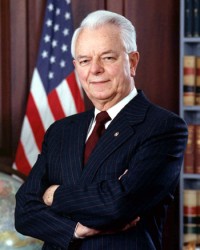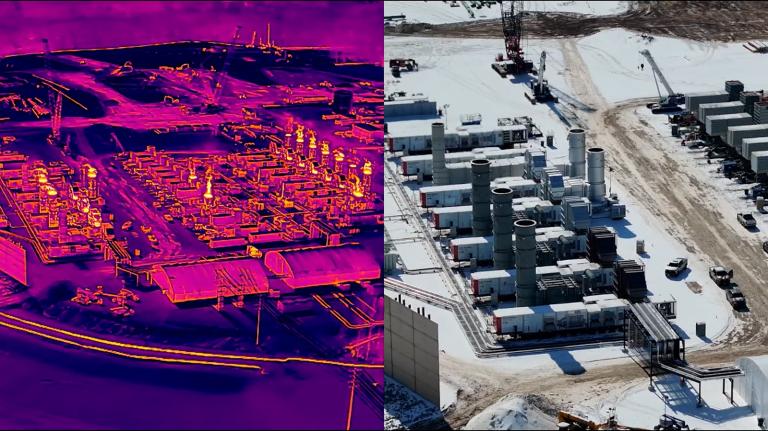The elders of the U.S. Senate usually aren’t good people to look to for signs of hope and change. But Robert Byrd, the 92-year-old senator from West Virginia, is making some surprising statements lately.
After a career as a loyal coal-industry defender, Byrd made headlines last year by calling on the industry to “embrace the future” of a climate-constrained world. “West Virginians can choose to anticipate change and adapt to it, or resist and be overrun by it,” he wrote back in December.
Now he’s got an even bolder op-ed in the Charleston Daily Mail ripping the mining industry for putting profits ahead of the health of its workers and the people of West Virginia.
“The monolithic power of industry should never dominate our politics to the detriment of local communities,” he writes.
He takes aim both at mountaintop removal-the extraordinarily harmful mining practice-and at an unnamed company with a dismal safety record. This is quite clearly Massey Energy, which lost 29 workers in an explosion this spring and is currently under FBI investigation for possibly bribing safety inspectors. The Washington Independent’s Mike Lillis has been talking to former Massey employees and uncovering horrifying safety practices.
Writes Byrd:
A single miner’s life is certainly worth the expense and effort required to enhance safety. West Virginia has some of the highest quality coal in the world, and mining it should be considered a privilege, not a right.
Any company that establishes a pattern of negligence resulting in injuries and death should be replaced by a company that conducts business more responsibly. No doubt many energy companies are keen for a chance to produce West Virginia coal.
That’s quite the veiled threat. And then there’s this:
The industry of coal must also respect the land that yields the coal, as well as the people who live on the land. If the process of mining destroys nearby wells and foundations, if blasting and digging and relocating streams unearths harmful elements and releases them into the environment causing illness and death, that process should be halted and the resulting hazards to the community abated.
It’s a remarkable shift of perspective at this late stage in Byrd’s career. I’d like to think the old guy has had a change of heart, possibly inspired by a doe-eyed grandchild. Or a Christmas ghost? It’ll be interesting to see if Byrd follows up with action to protect West Virginia-and the rest of us-from the effects of the coal industry.
(Hat tip to Mike Lillis.)



